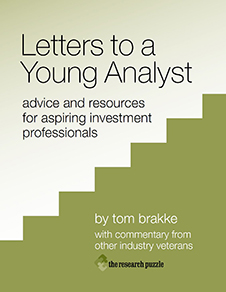
- Monday, August 6th, 2012
- social feedback
-
Robert Frank began his column in the New York Times yesterday with this sentence: “There may be no topic that more reliably divides liberals and conservatives than the relationship between success and luck.”New York Times | Frank is an economics professor at Cornell. The first few paragraphs of the piece — and the last few — had a political flavor to them. Like an Oreo cookie, the good stuff was in between.
I suppose you might find it hard to believe that the “good stuff” was academic research by three sociologists.Science | This is a PDF from Science of the research by Duncan Watts, Matthew Sagalnik, and Peter Dodds. The researchers had participants in their study rate the quality of songs that they previously had not heard. The bottom line: Their judgments were distinctly different depending on whether they received information about how others had already rated a particular song.
So, let’s see: Politics, music, sociology — are investments in there anywhere? Yes, indeed.
The opinions of investors are malleable too. It is easy to be swayed by the “social feedback” (as Frank describes it) that you receive. As with the participants in the study who rated music, our perspectives on investment possibilities often change based upon what we know about how others view them.
That can happen even when we have a only generalized view of an investment’s popularity, such as the aggregated rating on a stock by top analysts or its level of activity on an online investment idea site. Let’s say you’re an endowment officer; will your percentage allocation in alternatives be affected by that typical of your peers? And aren’t market-weighted benchmarks like the S&P 500 a popularity contest of their own, with the votes of the market setting the weights — and investors often jiggering their exposures in response?
Those are all averages, and they have the power to frame your decision making in subtle and not-so-subtle ways. Even more powerful are the opinions of those you have come to trust, through personal contact or observation.
That analyst that recommended a stock which became a ten-bagger for you? Every word he says will effect your decision process for a long time to come. The person you’ve been reading at that online site who seems to have everything wired? She becomes the first one you read each morning. The heads of the Harvard and Yale endowments? They are the ones on stage at conferences and you’re in the audience; guess how your alternatives exposure is likely to gravitate in response to a presentation about theirs.
I’m not saying that you shouldn’t seek out those with expertise, but it is very tricky business to objectively judge real expertise and to properly size it in your investment process (so as not to let the opinions of others overwhelm the facts at hand or your own careful analysis of them). As the research on musical taste demonstrates, the starting point of your assessment is often influenced by others in ways that you don’t understand.
That presents a significant challenge for individual investors, and for investment organizations too.the research puzzle | This 2009 piece is called “thus spake the king,” and describes the particular challenges of making decisions when there is a dominant leader or investment “star.” No one is immune from the negative effects of social feedback when they make decisions, so an investment process should be designed to minimize those kinds of errors.
Does yours?
